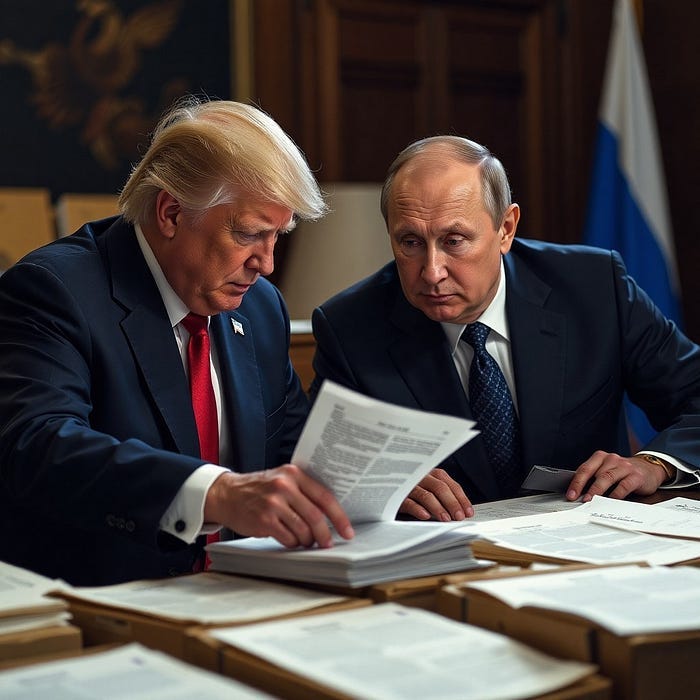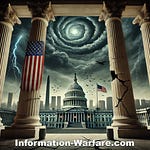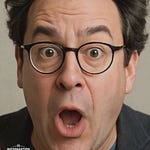This interview provides a detailed account of longstanding concerns regarding Donald Trump’s alleged ties to Russia, his impact on NATO, and his actions that undermine Western alliances.
The interviewee, an expert who has written extensively on Trump’s connections to Russia, argues that Trump has been cultivated as a Russian asset since the 1980s and continues to act in ways that benefit Vladimir Putin over American interests.
Key Takeaways from the Interview
1. Trump’s Relationship with Russia Dates Back to the 1980s
The KGB began cultivating Trump as an asset in the 1980s, similar to how they recruited wealthy businessmen like Armand Hammer.
Trump’s first Moscow visit in 1987 was reportedly organized by the KGB, and after returning, he took out a full-page ad in The New York Times questioning NATO and America’s alliances — policies he still pushes today.
The interviewee claims Trump was not an agent but an “asset”, meaning he may not have been officially recruited but was influenced and manipulated to act in Russia’s interest.
2. Trump Has Repeatedly Aligned with Russia Over NATO & Ukraine
In 2018, Trump sided with Putin over U.S. intelligence agencies at the Helsinki summit, publicly stating that he trusted Putin more than the CIA and FBI.
Trump’s policies weakened U.S. support for NATO while creating chaos in alliances that protect Western democracy.
His stance on Ukraine’s war against Russia aligns with Russian propaganda, and his political rhetoric echoes Russian talking points.
3. The Role of the Russian Mafia and Money Laundering
Russian mobsters used Trump’s real estate properties, including Trump Tower, to launder money, according to FBI files.
At least 13 individuals with Russian mafia ties have owned or lived in Trump properties, raising questions about financial entanglements.
Trump’s finances have been murky, with many deals tied to Russian oligarchs.
4. Appointing Russian-Friendly Loyalists in Key Government Positions
Trump’s second-term plan includes appointing loyalists instead of qualified officials to key government positions.
The interviewee specifically warns about Trump’s potential choices, such as Tulsi Gabbard (Director of National Intelligence) and Kash Patel (FBI Director) — both of whom have faced accusations of being sympathetic to Russia.
These appointments could dismantle checks and balances, making it harder to resist Russian influence.
5. The Risk to Western Intelligence & Global Stability
The interviewee warns that if Trump returns to power, allies like the UK, France, and Germany will no longer trust U.S. intelligence agencies, as classified information may be shared with Russia.
NATO could collapse, leaving Eastern European nations vulnerable to Russian aggression.
Trump’s rhetoric suggests he is more aligned with authoritarian regimes than democratic allies.
Key Themes: Why This Matters
1. Is Trump a Russian Asset?
The evidence is circumstantial but consistent over four decades — financial ties, foreign policy alignment, and public statements all support the claim that Trump acts in Russia’s interest.
The definition of an “asset” doesn’t require Trump to have been formally recruited; it only requires him to willingly or unwillingly serve Russia’s objectives.
2. The Threat to NATO and Global Democracy
Trump’s hostility toward NATO and his friendship with Putin threaten the very foundations of Western security.
If NATO collapses, Europe is left defenseless against Russian aggression.
The U.S. would lose global credibility, making authoritarian regimes stronger.
3. The Urgency of Action Before 2024
The potential return of Trump to power poses a direct threat to U.S. democracy and global stability.
The world cannot afford another four years of a leader who weakens alliances, strengthens dictators, and spreads misinformation.
Conclusion: The Stakes Are Higher Than Ever
The interview presents a chilling warning — that Trump’s long-standing ties to Russia and hostility toward NATO are not random but strategic. The Western alliance that has kept global peace for decades is now under threat. If America does not take decisive action to protect its democracy, it risks falling into the hands of authoritarian influence.
🚨 The time to act is now. The future of democracy depends on it.
Craig Unger is an American journalist and author, renowned for his investigative works that delve into the intricate relationships between political figures and foreign entities. Born on March 25, 1949, Unger pursued his education at Harvard University, where he began his journalism career as an undergraduate editor for The Harvard Crimson.
Throughout his career, Unger has held prominent editorial positions, including serving as deputy editor of The New York Observer and as editor-in-chief of Boston Magazine. His writings have been featured in esteemed publications such as The New Yorker, Esquire, and Vanity Fair, where he contributed for over 15 years, focusing on national security and foreign affairs.
Unger has authored several New York Times bestselling books that critically examine the intersections of American politics and international relations. Notable works include “House of Bush, House of Saud,” which explores the connections between the Bush family and the Saudi royal family, and “House of Trump, House of Putin,” which investigates the ties between Donald Trump and Russian operatives. His 2021 publication, “American Kompromat,” delves into how the KGB allegedly cultivated Donald Trump over decades.
In addition to his writing, Unger has appeared as an analyst on various broadcast outlets, offering insights into political and security matters. He has also contributed his expertise to documentary films, including Michael Moore’s “Fahrenheit 9/11.” Currently, Unger resides in New York City, continuing his work as a prominent voice in investigative journalism.











